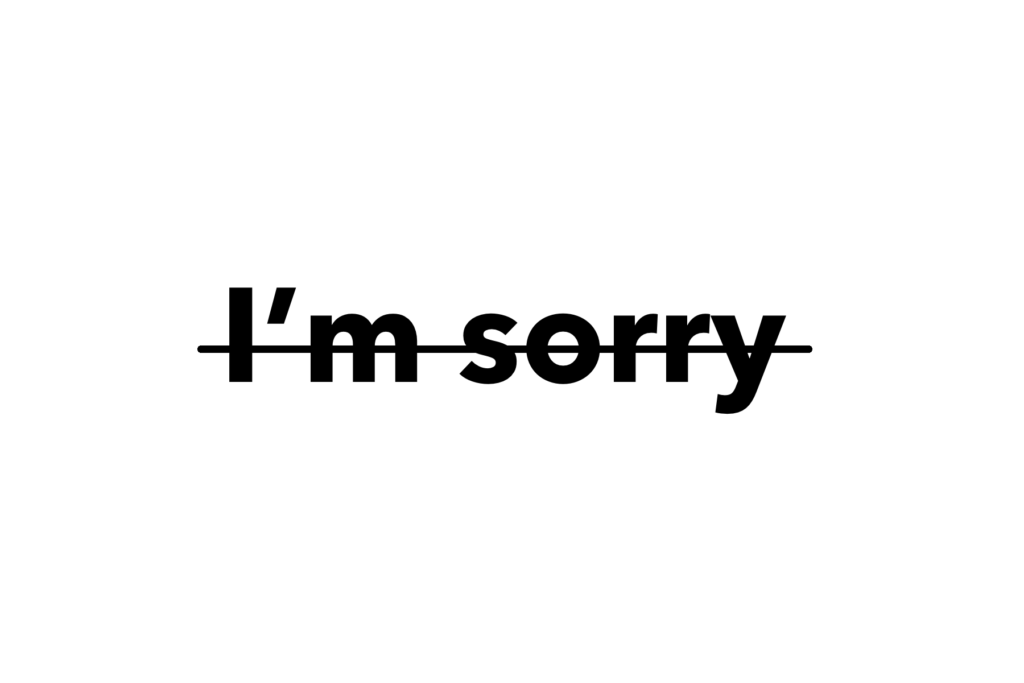In one of my favorite TV series, NCIS, one of the leading characters, Jethro Gibbs, lives by a set of rules. Rule #6 is “Never say you’re sorry.” On the show, that rule is often followed by the phrase, “It’s a sign of weakness.”
I disagree with the absolute of NEVER saying you’re sorry because sometimes an apology is appropriate. But, over-apologizing, saying, “I’m sorry” as a typical response in uncomfortable situations can be a “sign of weakness,” a disempowering default reaction that minimizes you and your contributions.
Are you over-apologizing in emails?
I can’t quantify how much apologizing would be too much, as there are many factors, including the volume of emails you send. However, do you even know how much you say it?
One quick check is to search your sent email for the word “sorry.” I did that and found I said “sorry” 5 times in the last year, three times to show empathy about hearing bad news (“I’m sorry to hear . . .”), and twice to express regret for a situation and my part in it. I also had four instances of “I apologize.”
Are you over-apologizing in your presentations?
One of the most uncomfortable situations in which people over-apologize is when things don’t go according to plan during a presentation.
Remove the words “I’m sorry” from your presentation vocabulary unless you have wronged someone during your presentation (which you won’t, right?) or you specifically are making a speech of apology.
You might think you are only being nice or humble, but saying “I’m sorry” too much can undermine others’ confidence in you.
Don’t apologize for your speech or your speaking skills. Don’t apologize for being nervous. Don’t apologize that you aren’t prepared (this is insulting to your audience, as you have just told them they weren’t important enough for you to prepare for). Don’t apologize for your appearance. Don’t apologize that the subject is boring (now your audience will believe it is boring). Don’t apologize for using notes. Don’t apologize if you forget what you are going to say next or if you left something out (the audience probably won’t notice). Don’t apologize for not knowing the answer to a question. Don’t apologize if your slides don’t work or if you click on the wrong slide (just acknowledge it was the wrong slide and move on). Don’t apologize for things you can’t change, like the temperature of the room. Maybe ask someone else to adjust the thermostat.
An alternative approach is to show appreciation. Expressing gratitude builds up your audience and makes you feel good, too.
For example, instead of “I’m sorry that my slides aren’t working,” try “Thank you for your patience.”
What are your thoughts on saying, “I’m sorry?”

